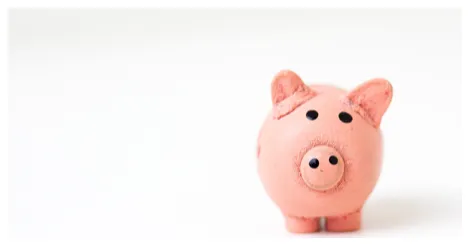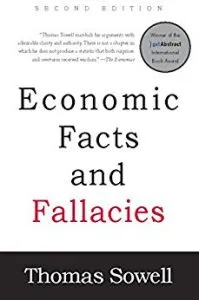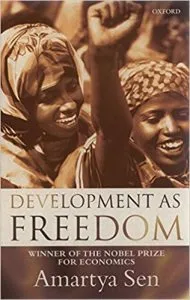We’ve previously shared
great personal finance books for your reading pleasure, but sometimes you really want a bigger picture of what’s happening in global markets. If you are like me and not an Economics expert, it’s nice to find a book that explains a small sliver of Economics, but doesn’t attempt to cover everything in the world or require a ton of background information. These are great books about economics for starting to up your Econ knowledge without feeling like you have to take ten college classes first…though having done that will certainly help!

More than any other book, this text taught me a new perspective on the profit motive. Dr. Nelson points out that imagining the economy as a machine, cold and impersonal, is an unnecessary metaphor and we are allowed to think of it differently. We are allowed to value caring professions like teaching and care-taking without assuming that we should pay these jobs less than other jobs. It discusses imagining economics as a beating heart: while money does need to flow all over for an economy to be “healthy,” it doesn’t have to be a ruthless pursuit of short-term profits. She even shows how long-term, the economy will have fewer recessions if we factor in the true costs of various parts of the economic enterprise, like paying attention to environmental degradation and the negatives of ultra-inexpensive outsourcing models.
This book, on the surface, isn’t about economics: it’s an in-depth account of life in the Bronx for a family and those who are connected to them, including their tough experiences with the drug trade and with everyday struggles to raise children, hold jobs, and pay bills. LeBlanc’s ten years spent getting to know the dynamics of this family, however, did more to help me understand the way that poverty is costly than any other connection I’ve had in the past. The characters, from the wealthiest drug kingpin to the most destitute mom trying to feed her kids, all make economic choices to survive and take economic risks to hope for payoffs that result in better lives.
This book gives an extended example (that of the materials, labor, and trade that goes into making and selling a t-shirt) that shows how a globalized economy works. This example makes the implications of global trade regulations, wages in different countries, and different uses along the lifecycle of cloth way more interesting than they might be otherwise. Realizing that the particular businesses that make t-shirts have no need to show you just how much global trade happens both before and after you own a t-shirt is an eye-opening truth. In particular, this book made me think more about how and what I donate to companies.
Sowell is an award-winning economist who does an especially good job in the books he’s written that break down economic theory for regular people. His work is, however, still theoretically complex and often deals with perceptions and realities of the marketplace, especially the way that politics factors in to how people regard the monetary decisions of others. This book in particular discusses fallacies that many of us fall into when it comes to the ways that policy and behavior impact economic benefit; it shows how much of the conventional wisdom about how the economy works is actually somewhat misleading, and helps you to look at economic news with new eyes.
Nudge by Richard Thaler and Cass Sunstein
This book, looking at the small changes we can make to instructions, guidelines, and designs that can have a huge impact on the way people behave, both comes off as a little manipulative and also seems like a worthwhile thing to think about. If asking someone to opt out of a retirement account instead of asking them to opt in results in more people with substantial savings for their retirements, it seems like the kind of choice worth studying and possibly implementing. This book taught me that choice is always a little political and definitely impactful, but that making it easier to make healthy choices is something I don’t mind people knowing how to do.
Freakonomics by Stephen Dubner and Steven Levitt
This book started the trend toward understanding behavioral economics in a way that was both splashy, engaging, and silly. While I’d put this book on the list mostly because it was my “gateway economics” book, I also think that it’s less dense than Economics for Humans and more connected to many people’s daily lives than some of the Nudge research. It is well worth a read, even if I encourage you to look into more economists once you’ve read Dubner and Levitt’s work, since this is also sometimes the only economics book people have read.
This book is a bit of a bonus offering, since it expands out from economics into the world of development in general. After reading this many economics books, most of us hunger for wider context. The other freedom factors that Sen cites—political, social, transparency, and personal security—are deeply impacted but not fully determined by economics. Seeing development through these many lenses helps us not to fall into the “all people behave rationally” economics trap. This trap doesn’t always account for the many ways in which rational behavior is rational for a different reason, not because it makes “money sense.” Learning about development from this book made me want to learn more. In particular, I want to learn how economics impacts but doesn’t determine entirely the way that different elements of modern societies function.
















